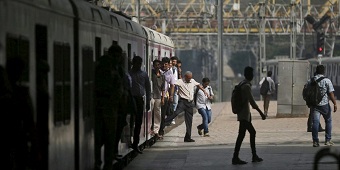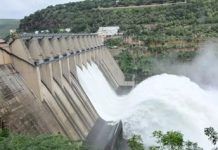The Indian Railways have once again floated a Rs 1,000 crore tender for closed circuit television cameras in a bid to strengthen video surveillance systems in coaches and stations across the country.
The move comes after its last few attempts at procuring surveillance network technology were not successful, one of which failed over allegations of problems in the bidding process.
In August 2018, RailTel, the transporter’s telecom arm, in its third attempt, floated a tender for the supply, installation, testing, commissioning, operation and maintenance of 89,845 IP (Internet Protocol)-based video surveillance system (VSS) at 6,124 railway stations.
Eight major players – HFCL, L&T, BECIL, BEL, Mahindra Defence, TCIL, Avrin Pro and KEC International – emerged as serious contenders for the job after the bid’s closure on October 30, 2018.
However, in a setback to the national transporter’s security plans, the multi-crore tendering process for installing CCTV cameras with facial recognition capabilities at stations was scrapped in February 2019 amid pulls and pressures from many other other players keen to be part of the Rs 1,000-crore project.
Before February, CCTV tenders were already scrapped twice due to various reasons.
“We have floated a fresh tender again this month after discharging the last one in February. This time, we have tried to make it broad-based by enhancing the scope,” a senior RailTel official involved with the project said. The specifications and some criteria have been tweaked to widen the scope so that more players can participate in the race.
The new project, estimated to be to the tune of Rs 1,500 crore, involves installing CCTV cameras at 6,124 stations and 7,200 coaches. The fresh tender aims to invite serious players to install about 1.5 lakh CCTV cameras. The bidding document has incorporated many suggestions with the aim of making it more competitive and broad-based in qualifying criteria, said the official.
These powerful IP cameras will not only record movements at stations and trains, but will also be equipped with facial recognition software, motion detection, quick review and intrusion detection. The recording will be scrutinised round-the-clock by security personnel of the Railway Protection Force and Government Railway Police.








